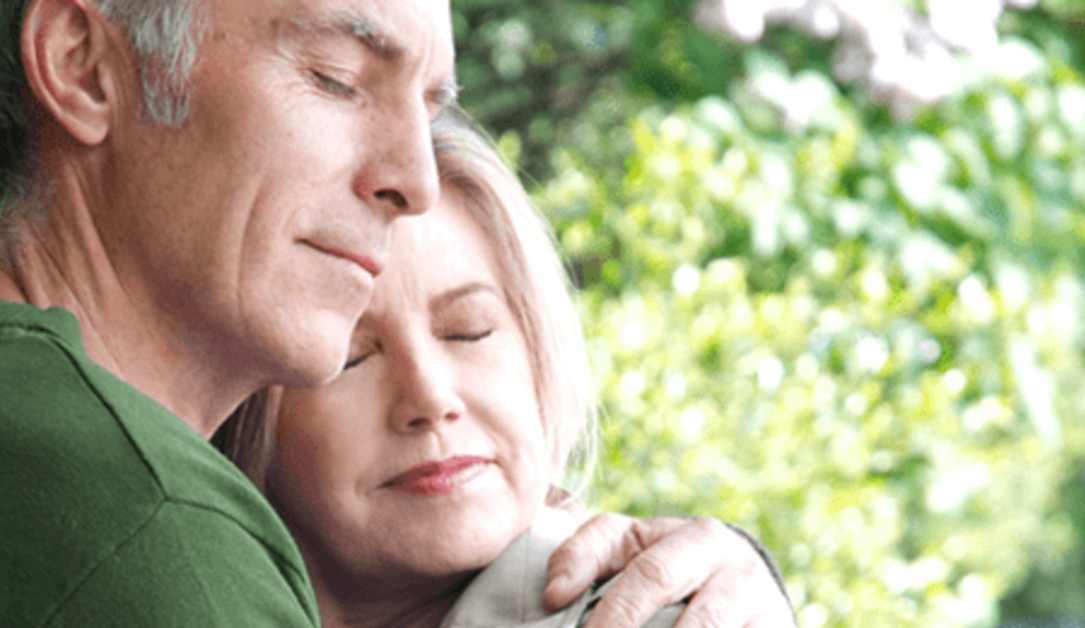The Greek translation for the word encouragement is parakletos, which literally means "called alongside to help." It brings to mind the biblical image of two people yoked side by side, as when Jesus said, "Take my yoke upon you and learn from me.... For my yoke is easy and my burden is light" (Matthew 11:29-30). This kind of encouragement includes offering an uplifting word, but it is more than that. It is standing by your husband and keeping an attitude of good cheer when he is laid off from his job. It is taking the kids for a Saturday when your wife is too tired to even stand. It's rearranging or postponing your plans— or even your career aspirations—when your mate is disheartened and needs your support.
Let's apply this concept, now, to you and me. What should a woman do for a man that will relate directly to his masculine nature? In a word, she can build his confidence. This vital role is best illustrated by one of my favorite stories, as it was told by my late friend Dr. E. V. Hill. E. V. was a dynamic black minister and the senior pastor of Mt. Zion Missionary Baptist Church in Los Angeles. He had lost his precious wife, Jane, to cancer. In one of the most moving messages I've ever heard, Dr. Hill spoke about Jane at her funeral and described the ways this "classy lady" made him a better man.
As a struggling young preacher, E. V. had trouble earning a living. That led him to invest the family's scarce resources, over Jane's objections, in the purchase of a service station. She felt her husband lacked the time and expertise to oversee his investment, which proved to be accurate. Eventually, the station went broke and E. V lost his shirt in the deal.
It was a critical time in the life of this young man. He had failed at something important, and his wife would have been justified in saying, "I told you so." But Jane had an intuitive understanding of her husband's vulnerability. Thus, when E. V. called her to tell her that he had lost the station, she simply said, "All right." E. V. came home that night expecting his wife to be pouting over his foolish investment. Instead, she sat down with him and said, "I've been doing some figuring. I figure that you don't smoke, and you don't drink. If you smoked and drank, you would have lost as much as you lost in the service station. So six in the one hand, and a half-dozen in the other. Let's forget it."
Jane could have shattered her husband's confidence at that delicate juncture. The male ego is surprisingly fragile, especially during times of failure and embarrassment. That's why E. V. needed to hear her say, "I still believe in you," and that is precisely the message she conveyed to him.
Shortly after the fiasco with the service station, E. V. came home one night and found the house dark. When he opened the door, he saw that Jane had prepared a candlelight dinner for two. "What meaneth thou this?" he said, with characteristic humor. "Well," said Jane, "we're going to eat by candlelight tonight." E. V. thought that was a great idea, and he went into the bathroom to wash his hands. He tried unsuccessfully to turn on the light. Then he felt his way to the bedroom and flipped another switch. Darkness prevailed. The young pastor went back to the dining room and asked Jane why the electricity was off.
She began to cry. "You work so hard, and we're trying," said Jane, "but it's pretty rough. I didn't have quite enough money to pay the light bill. I didn't want you to know about it, so I thought we would just eat by candlelight."
Dr. Hill described his wife's words with intense emotion. He said, "She could have said, 'I've never been in this situation before. I was reared in the home of Dr. Carruthers, and we never had our lights cut off' She could have broken my spirit. She could have ruined me. She could have demoralized me. But instead, she said, 'Somehow or another, we'll get these lights on, but let's eat tonight by candlelight.'"
E. V. continued. "She was my protector. Some years ago I received quite a few death threats, and one night I received notice that I would be killed the next day. I woke up thankful to be alive, but I noticed that she was gone. I looked out the window, and my car was gone. I went outside, and I finally saw her driving up in her robe. I said, 'Where have you been?' She said, 'I...I...it occurred to me that they could have put a bomb in that car last night, and if you had gotten in there, you would have been blown away, so I got up and drove it. It's all right.'"
Jane Hill must have been an incredible lady. Of her many gifts and attributes, I'm most impressed by her awareness of the role she played in strengthening and supporting her husband. E. V. was a powerful Christian leader. Who would have believed that he needed his wife to build and preserve his confidence? But that's the way men are made. Most of us are a little shaky inside, especially during early adulthood.
It was certainly true for me. Shirley has con¬tributed immeasurably to my development as a man. I've said many times that she believed in me before I believed in myself and that her respect gave me the confidence with which to compete and strive and risk. Most of what I'm doing today can be traced to the love of this devoted woman, who stood by me, saying, "I'm glad to be on your team."
What I'm trying to say is that the sexes are designed with highly specific but quite different psychological needs. Each is vulnerable to the other in unique ways. When reduced to basics, women need men to be romantic, caring, and loving, and men need women to be respectful, supportive, and loyal. These are not primarily cultural influences that are learned in childhood, as some would have us believe. They are deeply rooted forces in the human personality. Indeed, the Creator observed Adam's loneliness in the Garden of Eden and said, "It's not good for the man to be alone." So He made him a helpmate, a partner, a lover—an encourager designed to link with him emotionally and sexually. In so doing, he invented the family, and gave it His blessing and ordination.
Encouragement is a participation game. When you stand alongside your partner and share his or her troubles, you've become a practitioner of parakletos and an exceptional source of courage and hope.
From 7 Solutions for Burned Out Parents by Dr. James C. Dobson
Request this resource HERE.












